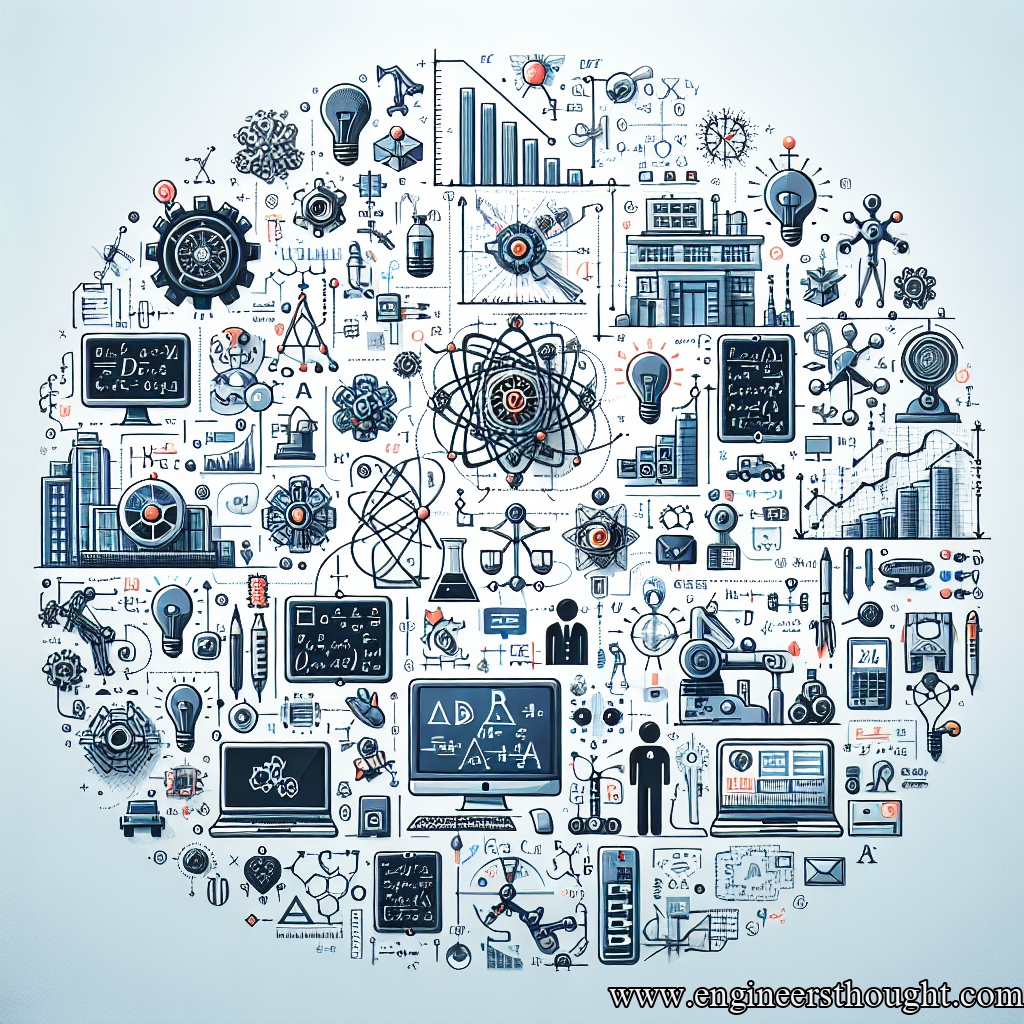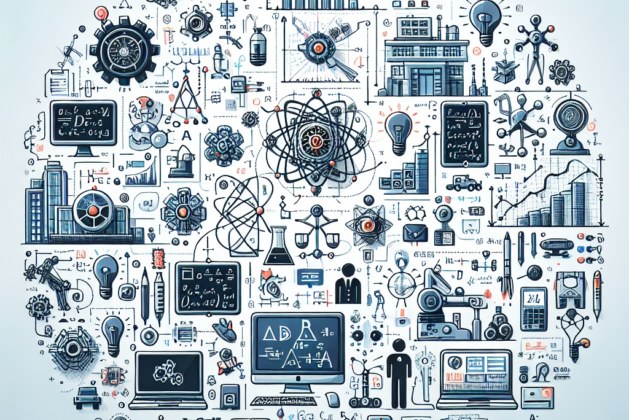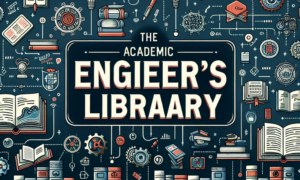Engineering is an evergreen profession that combines creativity and science. It is an innovative and applied science that seeks to solve complex problems using technical methods. Engineering is an art that finds solutions to problems using logical and creative thinking. It is a multidisciplinary practice that requires knowledge of mathematics, physics, and computer science. Engineers use their knowledge to design, construct, and operate structures, machines, and systems of all kinds. Engineering is an essential part of modern society, as it enables innovation in all areas of life. From bridges, to robots, to computers, and even to medical solutions, engineers have been at the forefront of progress. Engineering is a field that is constantly evolving and changing to meet the needs of society.

Definition of Engineering
Engineering is a creative profession that involves the application of scientific, economic, social, and practical knowledge in order to design, construct, and maintain structures, machines, devices, systems, materials, and processes. It is a discipline that uses mathematics, physics, and chemistry to solve complex problems in the world. Engineers use their knowledge of science and technology to create solutions that make our lives better. Engineering is an art of applying scientific and technical knowledge to create or operate machines, structures, and systems. It is the creative use of scientific principles to design and build structures, machines, devices, systems, materials, and processes. Engineering is an important part of our lives and it plays a vital role in the development of our society.
Benefits of Being an Engineer
Being an engineer offers several benefits, both professionally and personally. Professionally, engineers enjoy a high salary, job security, and numerous job opportunities. They also get to work with cutting-edge technology, develop innovative solutions, and collaborate with other professionals. Personally, engineers get to use their creativity to solve real-world problems. They also get to develop skills like problem-solving, critical thinking, and collaboration. Additionally, they get the satisfaction of seeing their work come to life and making a difference in the world. Here are some of the other benefits of being an engineer: – Variety of career options – Developing new skills – Challenging work – Making an impact – Working with advanced technology – Applying creativity to problem-solving – Job security and high salary – Collaborating with professionals from different industries – Opportunities for career growth and development
Challenges of Engineering
Engineering is a creative profession that requires a lot of problem solving and analytical skills. It comes with its own set of challenges that engineers need to face. The first challenge is the ever-evolving technology. As technology keeps changing, engineers need to constantly update their knowledge and skills to keep up with the changing times. Another challenge that engineers face is the demand for accuracy in their work. As precision is of utmost importance in engineering, engineers need to ensure that their designs are accurate and that their calculations are correct. Yet another challenge is staying creative. With the same set of tools and constraints, engineers need to come up with creative ideas to solve different problems. Lastly, engineers also need to be able to think outside the box and come up with innovative solutions to difficult problems. This requires engineers to think differently and come up with creative solutions. Overall, engineering is a creative profession that requires problem solving and analytical skills. It also
Skills Necessary for Success
Engineering is a creative profession that combines technical skills with problem-solving and critical thinking. To become a successful engineer, one must possess a range of skills. Firstly, knowledge of mathematics and science is essential. As an engineer, one must understand and apply concepts from calculus, physics, chemistry, and other areas. Secondly, strong communication skills are necessary for successful engineering. Engineers need to be able to effectively collaborate with colleagues, explain technical details to non-technical people, pitch their ideas, and write reports. Thirdly, engineering requires creativity. Engineers must be able to come up with new solutions for problems and design innovative products. They must also have the ability to think outside the box and be able to visualize how their solutions will be implemented in the real world. Finally, problem-solving is a key skill for successful engineering. Engineers must be able to analyze data, identify problems, and develop solutions. They must also be
Examples of Engineering Innovation
Engineering is often seen as a profession of problem-solving and innovation. Its applications are wide-reaching, from the construction of buildings and roads to the development of robots and artificial intelligence. Throughout history, engineers have been inventing and creating new methods and technologies to make life easier, safer, and more efficient. Here are a few examples of engineering innovation: * Power: Engineers have devised ways to harness and generate electricity, as well as create efficient ways to use and store it. * Transportation: Engineers have made it easier to move people and goods around the world with the invention of cars, planes, boats, trains, and subways. * Medicine: Engineers have developed prosthetics, implants, and other medical devices to help people recover from injury or illness. * Robotics: Engineers have created robots to automate mundane tasks and make it easier to perform complex operations. * Communication: Engineers have developed the internet, computers, and cell phones to
People Also Ask
1. What makes engineering a creative profession?
Engineering is a creative profession because it allows engineers to solve complex problems with the application of science, mathematics, knowledge and experience. It encourages engineers to be innovative and come up with solutions that are practical and efficient. Engineering also requires creative problem-solving skills, which encourages engineers to think outside the box and come up with solutions that are both effective and efficient. Additionally, engineers are constantly learning and developing new technologies and processes, which requires them to be creative and think of new ideas.
2. What skills does an engineer need to have?
An engineer needs to have the following skills – 1. Problem solving 2. Analytical thinking 3. Creativity 4. Attention to details 5. Communication 6. Computer literacy 7. Leadership 8. Technical knowledge 9. Teamwork 10. Time management
3. How does engineering contribute to the development of society?
Engineering plays a major role in the development of society. It enables us to build roads, bridges, skyscrapers, and other structures that make our lives easier and more efficient. It also helps us develop clean and renewable energy sources, create better medical treatments and devices, and develop innovative technologies that improve communication and transportation. Engineering also helps us create a more environmentally conscious society by introducing sustainable practices for production and consumption.
4. How has engineering changed over time?
Engineering has changed drastically over time. New technologies and digitalization of processes have revolutionized engineering. Computer-aided design (CAD) and 3D printing have simplified the design process and made it more accurate, while automation and robotics have made manufacturing processes more efficient and cost effective. Additionally, advancements in technology have enabled engineers to create new products and services that have improved the quality of life for many.
5. What is the impact of engineering on the global economy?
Engineering has a major impact on global economy as it is a catalyst for innovation and development. It is responsible for creating new products, services, and systems which are essential to the global economy. Engineering also helps to reduce poverty by creating jobs and reducing the cost of production. Moreover, by providing various technological solutions, engineering has helped to increase the efficiency and productivity of global economies.
Final Thought
From the development of the wheel to modern day autonomous vehicles, engineering has been at the forefront of many of the greatest achievements in human history. It has revolutionized industry, and continues to drive progress in all areas of life. We are only limited by our own imaginations and engineering will continue to be a powerful tool for furthering our growth and knowledge.




